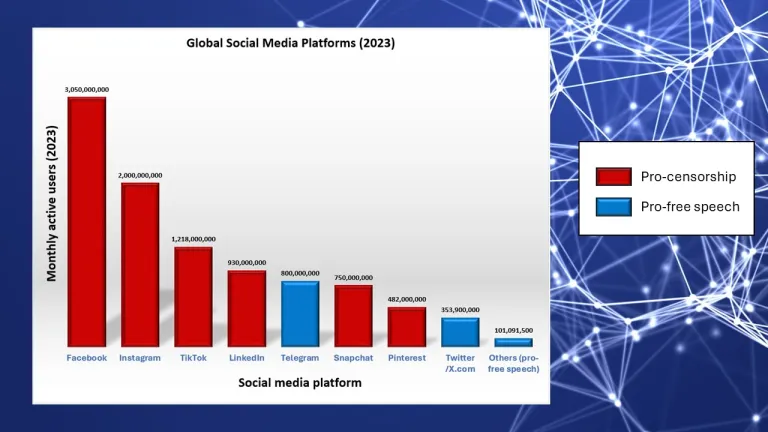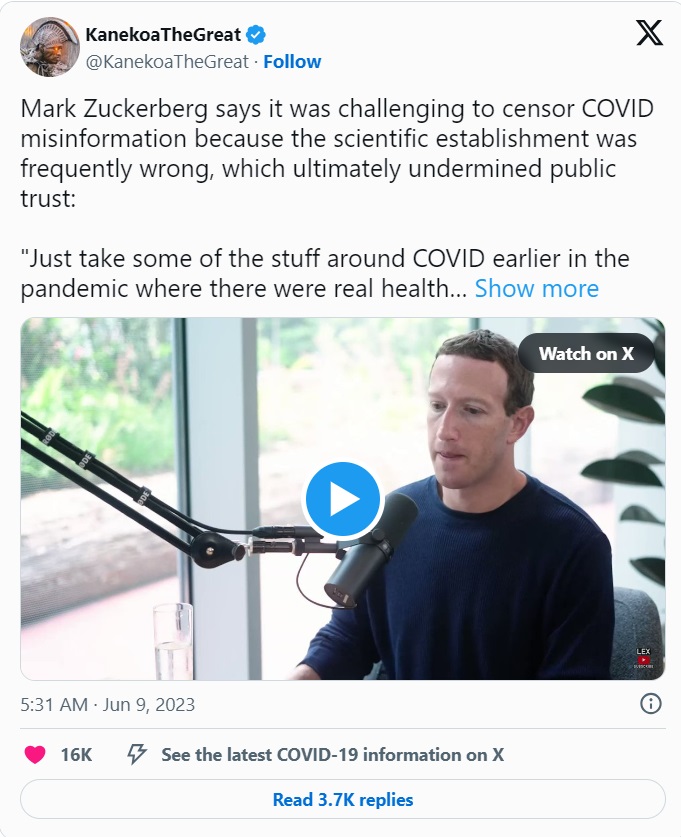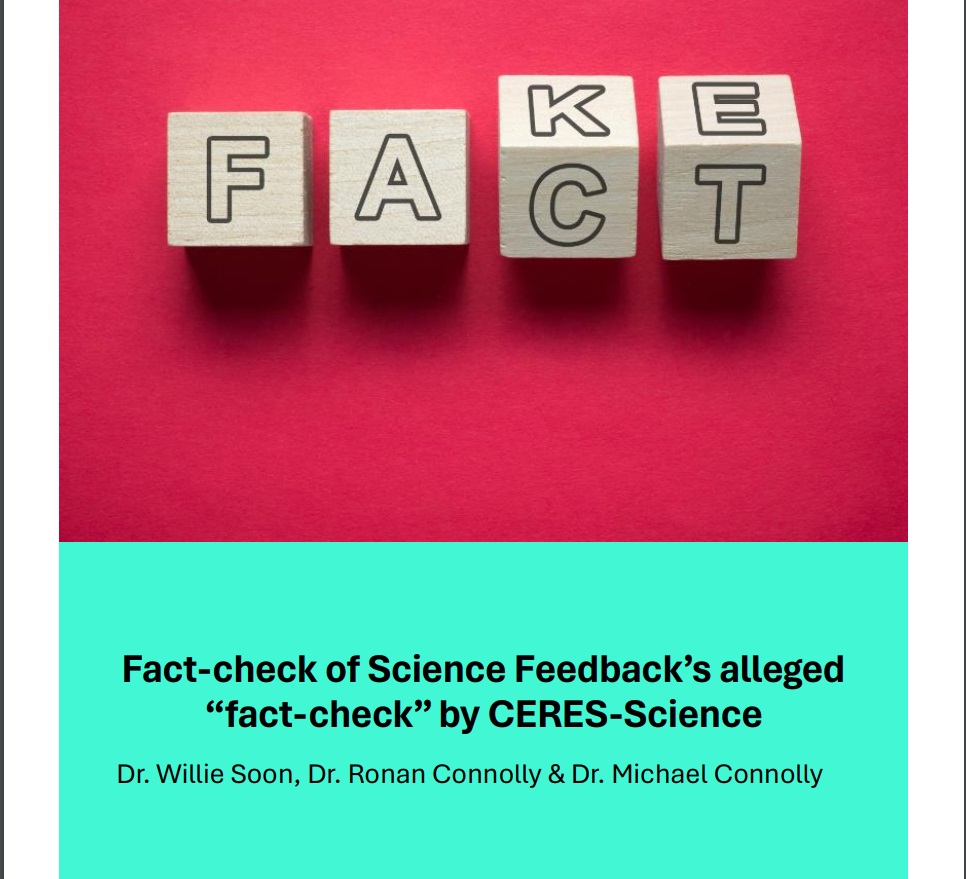By CERES team reposted from Watts Up With That?

Source: Shutterstock
In George Orwell’s science fiction dystopia, 1984, he envisaged a totalitarian society run by four “ministries”. The titles given to each ministry were deliberately the opposite of what they did:
“Even the names of the four Ministries by which we are governed exhibit a sort of impudence in their deliberate reversal of the facts. The Ministry of Peace concerns itself with war, the Ministry of Truth with lies, the Ministry of Love with torture and the Ministry of Plenty with starvation. These contradictions are not accidental, nor do they result from ordinary hypocrisy: they are deliberate exercises in doublethink. For it is only by reconciling contradictions that power can be retained indefinitely.” – George Orwell, 1984, Part 2, Chapter 9 (1949).
In recent years, a real-life equivalent to “the Ministry of Truth” has arisen with the rise of so-called “fact-checking organizations”. Currently, there are 118 such organizations that are “verified active signatories” (Archived link) of the International Fact-Checking Network (IFCN)’s code of principles. The IFCN is a unit of the Poynter Institute that “was launched in 2015 to bring together the growing community of fact-checkers around the world and advocates of factual information in the global fight against misinformation.”
The official stated goal of each of these “fact-checking organizations” is to “fact-check” alleged “misinformation” and “disinformation”. Specifically, the IFCN state that,
“We believe truth and transparency can help people be better informed and equipped to navigate harmful misinformation.” – Poynter Institute, IFCN. (Archived link).
However, as we will discuss, the reality is that, in many cases, these organizations are themselves actively generating disinformation and promoting misinformation. Their definition of “truth” seems to be that practiced by Orwell’s Ministry of Truth. In terms of “transparency”, these organizations apparently are accountable to nobody but themselves as the self-proclaimed arbiters of “truth”.
Often these “fact-check” articles might seem harmless, innocuous, and even useful. Naïvely, one might assume that if you disagreed with a particular fact-check, you could simply ignore it. However, they are much more consequential than you might think. This is because the top global social media platforms explicitly delegate these IFCN “independent fact-checker organizations” to evaluate “the truth” of content shared by the platform users. The social media platforms will substantially downrank or penalize users who are sharing content that has been “fact-checked” by one of these IFCN organizations.

As can be seen from the chart above, the number of monthly active users on these platforms represent a substantial proportion of the world’s population. Facebook has 3 billion users (nearly 40% of the world’s population); Instagram has 2 billion users (25% of the world’s population); and TikTok has 1.2 billion users (15% of the world’s population). [As an aside, TikTok also have a Chinese version, “Douyin”, that has an additional 0.7 billion users.]
Facebook and Instagram, owned by the same company, Meta, explicitly rely on IFCN-approved fact-checking organizations (link here; archived link here) to alter the information users see in their timelines, as described below:
“Fighting misinformation is an ever-evolving problem, and Meta can’t do it alone. We rely on independent fact-checkers to review and rate the accuracy of stories through original reporting, which may include interviewing primary sources, consulting public data and conducting analyses of media, including photos and video.
Each time a fact-checker rates a piece of content as false on our platforms, we significantly reduce that content’s distribution so that fewer people see it, label it accordingly and notify people who try to share it. Fact-checkers do not remove content, accounts or Pages from our apps. We remove content when it violates our Community Standards, which are separate from our fact-checking programs.” – Facebook (2024) (Archived link)
TikTok’s fact-checking “partners” are also IFCN-approved organizations – see here (Archived link).
A major problem with most of these “fact-checker organizations” is that they do not provide any right of reply – or any mechanism for the people they accuse of spreading misinformation to even respond to the claims made against them. Nor can the victims of a “fact-check” get the social media platforms to review or withdraw the allegations made by the alleged “fact-checker” website because those platforms do not assess the accuracy of content themselves. Instead, the platforms insist that it is not their responsibility to evaluate the accuracy of a fact-checker’s claims.
Indeed, the CEO of Meta, Mark Zuckerberg, recently admitted that much of the content that his platform was asked to be censored, “in retrospect, ended up being more debatable or true.”:

“Fact-check” attacks on CERES-Science’s scientific research
The CERES-Science team have now twice been victims of disinformation campaigns by Science Feedback, one of the IFCN “independent fact-checkers” used by Facebook, Instagram and TikTok. Science Feedback is an organization with two sister “fact-checking” websites: Climate Feedback and Health Feedback.
We have already written in September 2021 about the first time that Science Feedback wrote an alleged “fact-check article” on a newspaper article reporting on some of our scientific research. We published a detailed 15 page “fact-check fact-check” on their erroneous “fact-check” that can be downloaded here. We even wrote an open letter to Climate Feedback and Science Feedback in which we described how their article referring to our scientific research made multiple false and misleading claims that needed to be corrected.
Yet, more than two years later, this false article by Climate Feedback remains uncorrected – link here (Archived version). As we described above, these “fact-checking organizations” are apparently accountable to nobody but themselves as arbiters of “The Truth”.
This lack of opportunity for victims of a Science Feedback article to respond to the allegations made against them is particularly dangerous given that science thrives on different scientists being free to form their own scientific opinions on their research topics. In the scientific literature, if a research team publishes an article that expresses a different scientific opinion to other research teams, the other research teams are also able to write their own articles. The idea that one scientist might be the sole authority on what is “scientific truth” is anathema to the entire scientific endeavor.
Last month, Climate Feedback attacked us again. This time, they claim to have “fact-checked” the recent interview by Tucker Carlson of Dr. Willie Soon, a CERES-Science co-team leader. For links to the Tucker Carlson interview, see our January 9th, 2024 post.
Climate Feedback’s alleged fact-check of this interview was called, “Evidence greenhouse gasses cause global warming denied by Willie Soon in Tucker Carlson interview, resulting in mass social media climate misinformation” (Archived link).
This “fact-check article” has been used by Facebook, Instagram and TikTok to limit the ability of users to share or view any content related to this interview. It also potentially could be mis-used to harm the professional reputations of Dr. Soon, the CERES-Science team and the Tucker Carlson Network.
However, as with their 2021 alleged fact-check, this new “fact-check” is filled with false and misleading lies, disinformation, and other untruths. As before, they do not provide any right-of-reply – and users of those social media platforms are unable to object to Facebook, Instagram or TikTok.
Nonetheless, because unlike Science Feedback, we actually care about truth and scientific information, we have systematically responded to every one of the false or misleading claims made by Climate Feedback in their article in the following 62-page document:
Fact-check of Science Feedback’s alleged “fact-check” by CERES-Science

The dangers of this modern “Ministry of Fact-checking”
Science is a method for seeking the truth. In order for science to function effectively, scientists should be free to discuss and ask open-minded questions, and to offer their scientific opinions for discussion. As soon as their ability to express a scientific opinion is suppressed or prevented, then this shuts down scientific progress.
Similarly, journalists should be able to investigate topics, ask open-minded questions, and report their findings.
So, on complex issues, it is dangerous for any organization to try to censor the ability of people to express their opinion – even if that opinion is “wrong”, people have the right to be wrong.
And it becomes even more sinister when those censored opinions happen to be correct.
In George Orwell’s 1984, Winston Smith notes that, “Freedom is the freedom to say that two plus two equals four.” To get an idea of the power that these fact-checking organizations have, if Science Feedback were hypothetically to falsely issue a fact-check disputing the statement that “two plus two equals four”, there would be no way for the person who made that statement to reply or challenge this “fact-check”. If they tried to post this statement on Facebook, Instagram or TikTok, they would be penalized for sharing “false misinformation”.
Moreover, it is worth remembering that social media platforms were originally designed with the view that members of the public would be able to share information, opinions and ideas with members of their social network. The success of social media platforms was the organic grassroots way in which members of the public were given the power to share content with each other.
Increasingly, social media platforms are letting “fact-checking organizations” undermine the very foundations and even success of their own platforms.
